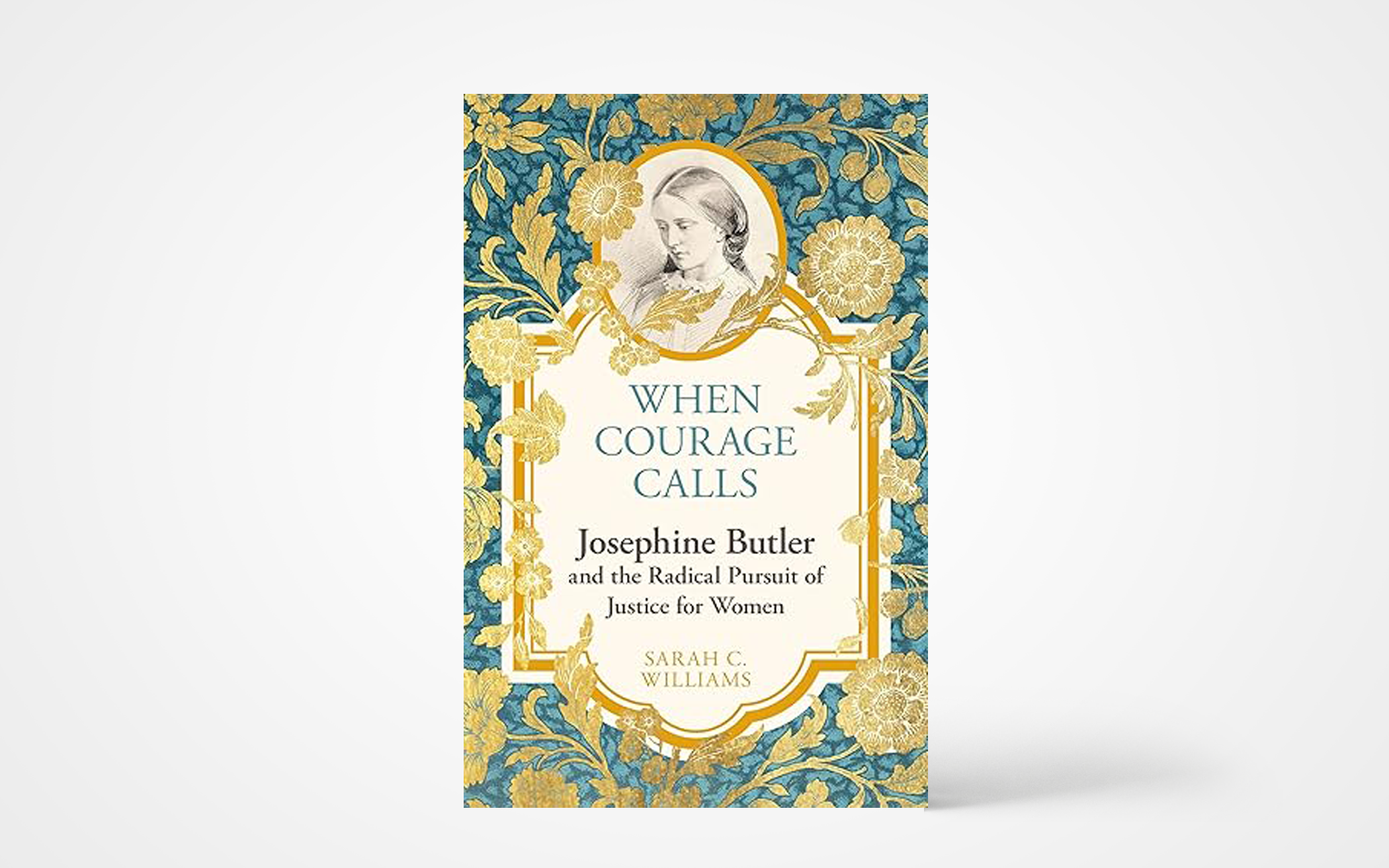Author and historian Sarah C. Williams presents readers with a captivating, timely biography of Josephine Butler, whose life spanned the Victorian period. Born in 1828, nine years before Queen Victoria ascended the throne, Butler died in 1906, five years after Victoria died.
Butler became a public figure due to her political activism for the sake of suffragettes and suffragists and so called “fallen women.” She was considered one of the first modern feminists. However, Williams asserts, Butler’s life and legacy eventually were ignored by later feminist movements.
When Courage Calls is Willaims’ brilliant response to history’s forgetfulness, showing that “Butler’s unique perspective remains profoundly relevant. This woman needs to be known and her voice heard in areas of heated contemporary debate, in matters of human trafficking, pornography, and sexual violence, but also in crucial debates over the nature of male and female sexuality, the regulation of sexual mores through state legislation, in the relationship between spirituality and public leadership, and in the goals and objectives of the feminist movement at a time when the future of feminism itself is called into question by fundamental controversy over how exactly a ‘woman’ should be defined.”
For this reader, the most compelling aspect of Butler’s life was her understanding of devoted, daily prayer as the bedrock of her life in Christ. This was true for her personally, as she faced the tragic death of her young daughter and numerous other challenges, and publicly, as the only source of patience, endurance, hope, and power that could sustain her and others in their 16-year battle to have the British government repeal the three unjust Contagious Diseases Acts of the 1860s.
Williams explains that the Acts “were carefully designed to protect men from the dangers of disease-ridden women who engaged in prostitution, in order to maintain healthy military personnel without curtailing age-old privileges and pleasures.” Though the first Act was implemented to protect military personnel, the second and third Acts expanded the power of the police to arrest prostitutes and other women deemed “fallen,” to subject them to painful and humiliating medical examinations, and to imprison them in hospitals till they were deemed “cured” of sexually transmitted disease.
With passion, prayer, and partnership with people from numerous denominations or no faith background, Butler exposed the damning evidence of England’s double standard, revealing how men in powerful positions consorted with prostitutes and sexually abused children, then went home to their respectable lives.
Williams skillfully weaves together material from Butler’s journals, letters, and published works to give readers insight into a person chosen by God to disrupt evil and bring about justice for women, not only in Britain, but also in Europe. Especially compelling are the stories of individuals whose lives were forever altered upon encountering Butler and the spiritual and physical refuge she provided in the name of Christ.
(Hodder &Stoughton)
About the Author
Sonya VanderVeen Feddema is a freelance writer and a member of Covenant CRC in St. Catharines, Ontario.

